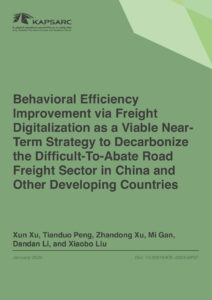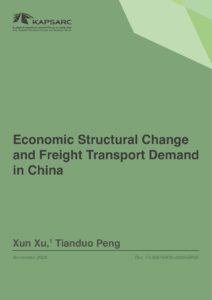
Behavioral Efficiency Improvement via Freight Digitalization as a Viable Near- Term Strategy to Decarbonize the Difficult-To-Abate Road Freight Sector in China and Other Developing Countries
The containment of road freight transport emission growth is a significant challenge to climate change mitigation, as the road freight sector has been one of the fastest growing sources of greenhouse gas (GHG) emissions and is considered particularly difficult to decarbonize (ITF 2021). Globally, this sector accounts for approximately one-fifth of the world’s oil demand and more than one-third of transport-related CO2 emissions (IEA 2017). The International Transport Forum (ITF) estimates that world freight transport demand (across all modes) will grow more than twofold in the next thirty years (ITF 2021), presenting a significant challenge to the UN’s climate change mitigation agenda. This challenge is exacerbated as low- and middle-income developing countries, often relying on road freight as a key pillar of domestic economic growth, are expected to account for most future surface freight activity growth (ITF 2021; SLOCAT 2021a); however, these countries are ill prepared to confront the mounting climate change mitigation pressure (Timperley 2021; UN Environment Program 2022; Wolf 2022).
4th January 2024
